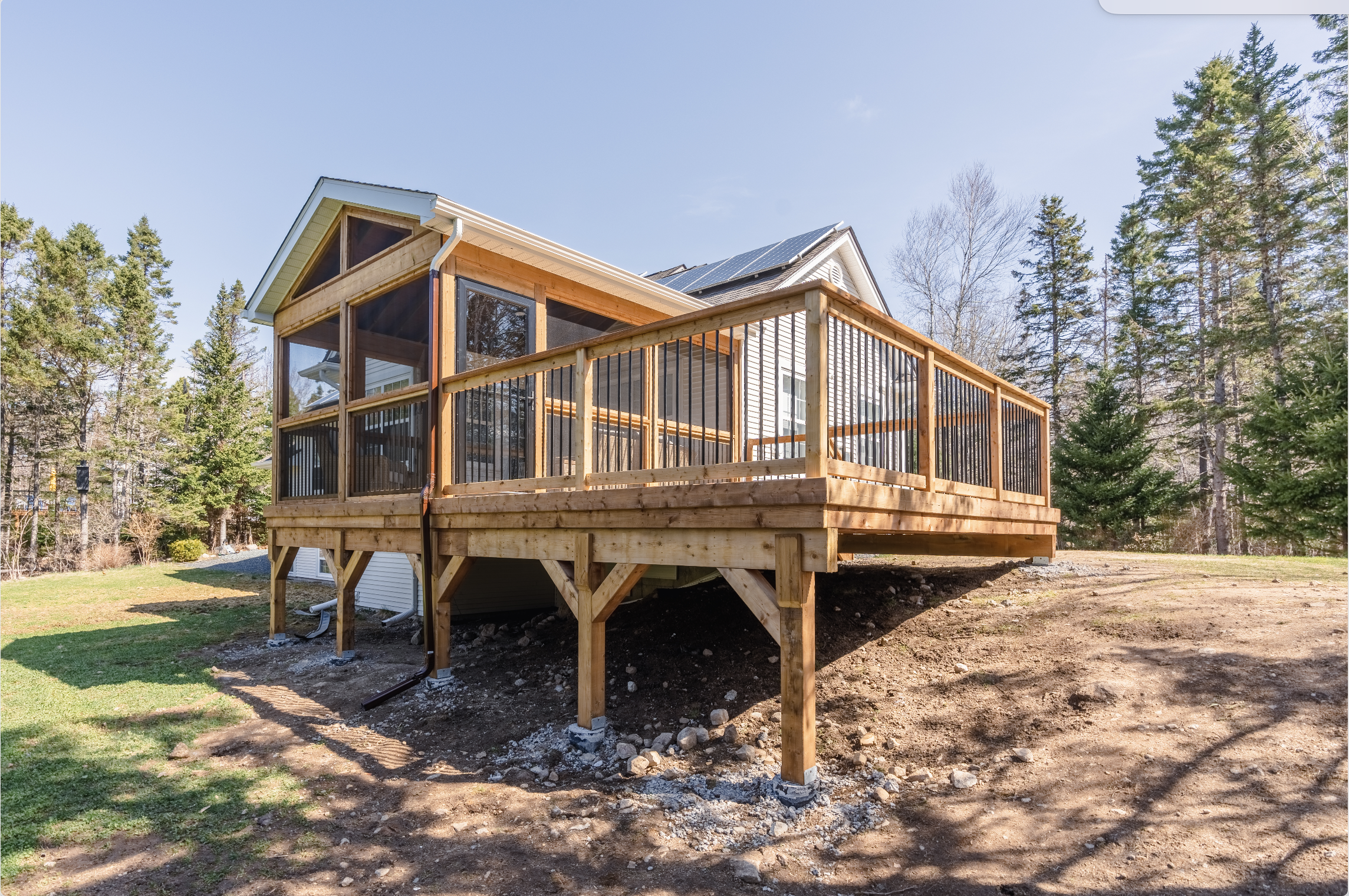Residential Excavation and the Crucial Steps for Success
When it comes to building decks, home additions, or addressing drainage and grading issues, residential excavation plays a pivotal role in ensuring the success and longevity of these projects.
This fundamental process involves precise planning and execution to create a solid foundation and stable landscape. In this blog post, we will dive into the specifics of residential excavation. We’ll focus on footings, screw piles, drainage work, and grading in various residential construction scenarios.
1. Footings for Decks and Additions
Footings are the support structures that anchor decks and home additions to the ground. Properly designed footings distribute the structure’s weight evenly, preventing settling and ensuring long-term stability.
The process of creating footings involves the following four steps:
- Site Preparation: The construction team inspects the area where the deck or addition will be built, ensuring the ground is level and free from obstructions. Clearing the site is necessary before excavation begins.
- Excavation and Depth: Excavators or backhoes are used to dig holes at specific locations for the footings. The depth of the footings is determined based on the local building codes and the load-bearing requirements of the structure.
- Reinforcement and Concrete Pouring: Steel rebar is often placed in the footing holes to reinforce them, increasing their strength. Once the rebar is in place, concrete is poured into the holes to form the footings.
- Curing and Inspections: The concrete footings need time to cure properly before further construction occurs. Additionally, inspections may be required to ensure the footings meet the necessary building standards.
2. Screw Piless for Support
Screw piles are long, slender columns driven into the ground for foundation support. The process of installing piles includes the following:
- Soil Analysis: Before pile installation, a thorough soil analysis is conducted to determine the type and condition of the soil. This analysis helps determine the appropriate pile type and length.
- Pile Installation: Screw Piles can be installed using various methods, such as driving them into the ground with a pile driver or drilling them in with augers. The choice of pile installation method depends on soil conditions and project requirements.
Our Screw Pile partner, Xtreme Post, created a fantastic video explaining how piles work. Watch it below.
For more information on piles, check out Xtreme post. All-Craft is proudly an X-treme post expert for Halifax, Dartmouth, Bedford and surrounding areas for Halifax Regional Municipality.
3. Drainage Work
Proper drainage is essential for preventing water accumulation and potential damage to the property’s foundation and landscaping.
Residential excavation plays a crucial role in implementing effective drainage solutions:
- Grading for Water Flow: Excavators adjust the terrain’s slope through grading to direct water away from the structure and toward appropriate drainage areas.
- French Drains: In areas with poor natural drainage, French drains are often installed during excavation. These systems consist of perforated pipes wrapped in landscape fabric and placed in trenches to redirect water away from vulnerable areas.
- Retaining Walls: In cases where elevation changes pose drainage challenges, retaining walls are constructed during excavation to create level surfaces and prevent soil erosion.
4. Grading for Landscaping and Aesthetics
Residential excavation is also instrumental in shaping the landscape for functional and aesthetic purposes:
- Site Preparation: Before grading, the construction team clears the site of debris, rocks, and vegetation to create a blank canvas for landscaping.
- Levelling and Contouring: Excavators carefully adjust the terrain’s elevation, levelling uneven surfaces and contouring the landscape to fit the design plan.
- Soil Enhancement: In some cases, soil amendments are added during excavation to improve quality, ensuring healthy plant growth and long-lasting landscaping.
Wrapping Up
Residential excavation is a multifaceted process that sets the stage for various construction projects, from decks and home additions to addressing drainage and grading issues.
By adhering to precise planning and expert execution, this critical phase lays the groundwork for a solid foundation, stable piles, efficient drainage systems, and aesthetically pleasing landscapes. Investing in the proper excavation practices ensures that your residential projects stand the test of time and provide a safe and comfortable space for you and your family to enjoy for years.
For any questions about your home project, contact us today.
Don’t forget to follow us on Facebook and Instagram to check out what All-Craft has been up to lately.


